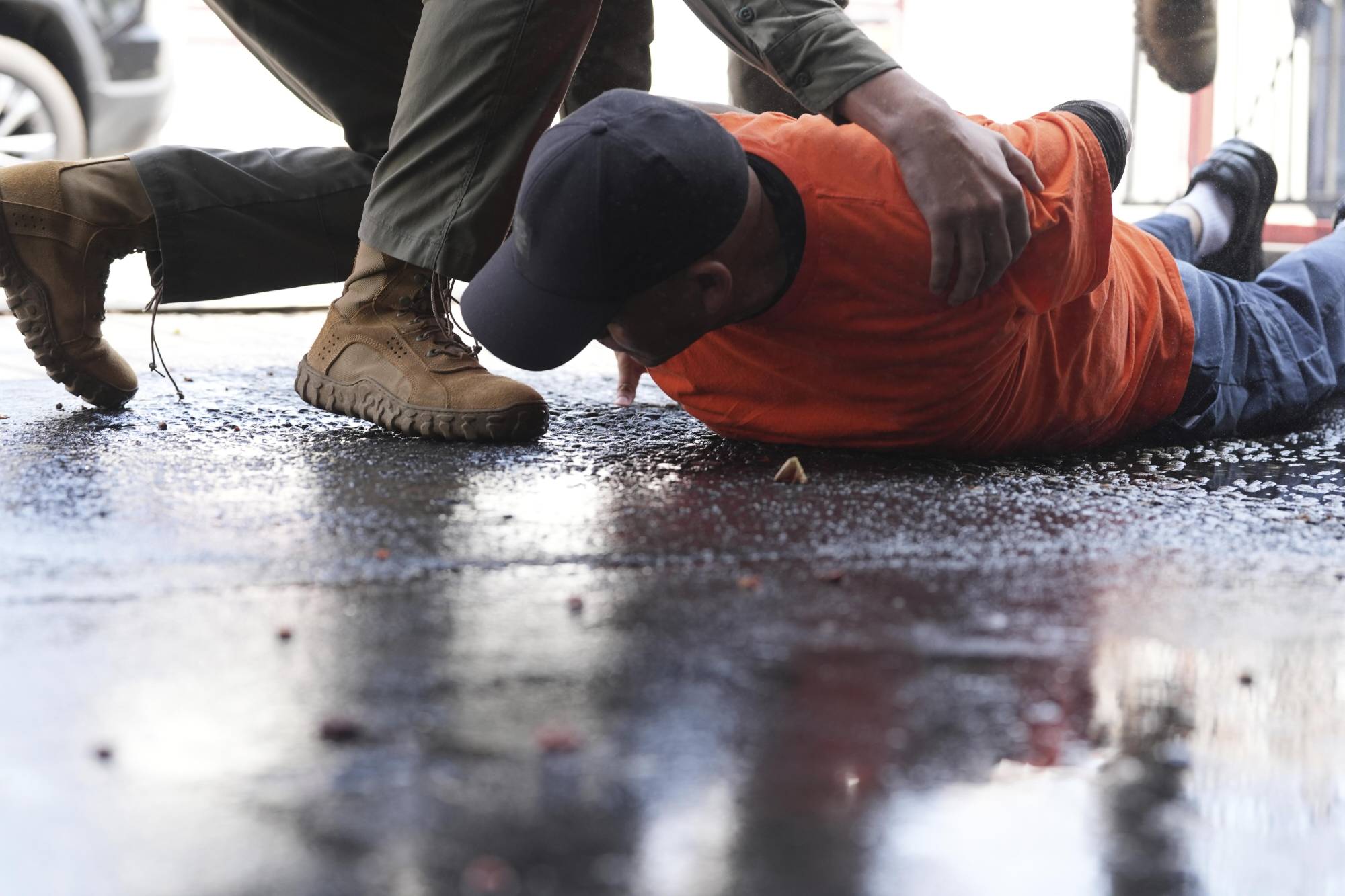
"In the past, immigration officers would look for specific people who had, say, a final removal order issued against them or someone who was convicted of a crime - something that would render an individual deportable, Arulanantham says. Now, in some cases immigration officers are executing major dragnets and arresting large groups of people and then determining if each person is in the U.S. illegally by interrogating them after they've been stopped."
"That happened in Los Angeles this summer, when immigration agents stopped people based on their perceived race or ethnicity, according to a lawsuit filed by ACLUSoCal, among others. The plaintiffs argue these actions violate the Fourth Amendment's right to privacy against unreasonable searches and seizures. A federal court agreed, ruling that agents can't rely on factors such as race, speaking Spanish, wearing workman-like clothes, and location (being present at places such as carwashes or Home Depot parking lots) to meet the standard of "individualized suspicion.""
Immigration enforcement tactics have shifted from targeting specific deportable individuals to executing broad dragnets that stop and arrest large groups for later interrogation to establish immigration status. Lawsuits allege agents in Los Angeles stopped people based on perceived race or ethnicity, and plaintiffs claim such practices violate the Fourth Amendment's protection against unreasonable searches and seizures. A federal court ruled that factors like race, speaking Spanish, workman-like clothing, and presence at places like carwashes or Home Depot parking lots cannot satisfy individualized suspicion. Reports indicate some officers may be flouting court orders, while widespread masking of agents has heightened community fear.
Read at Kqed
Unable to calculate read time
Collection
[
|
...
]